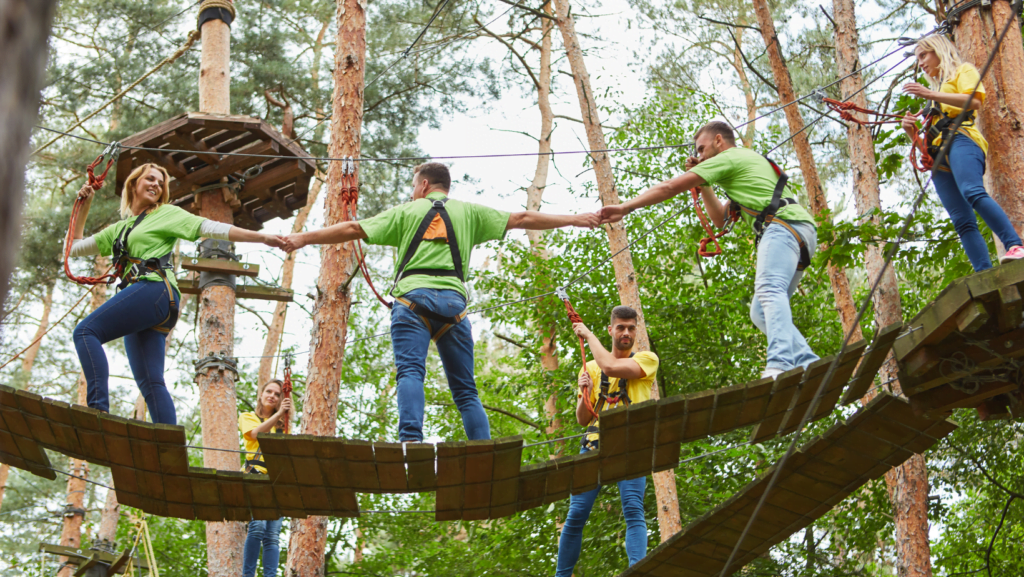
Despite of the popularity of the name coach, the profession of coaching is not necessarily for everybody. Not even becoming an agile coach is for everybody. So let’s put the pressure aside and think that in any profession you don’t have to be a coach to succeed in your career. You can be a manager or a developer.
What you can do differently is consider that there are some coaching skills you can learn and use even if you are not a coach.
I thought I could dedicate a post to 3 coaching skills that can really help you make an impact as manager, as a scrum master or maybe just as an amazing colleague. Plus, these are must-have skills for anyone aspiring to become a great agile coach.
1 – Just Listen more
The humble listening is never out of fashion. Listening is an unquestionable coaching skill where you learn to navigate what is said and what is NOT said.
A lot of people talk in teams and meetings. Sometimes they cut each other. It’s even harder without some of the physical cues when we are remote, and everybody decides not to turn on the cameras.
The utility of listening never fails. Listening is important to gain knowledge, to empathize with others and to plain and simple make sense of things. We notice patterns and we detect contradictions many times a day if we are truly listening.
How to listen?
While we could go very deep on the topic of listening, just remember sometimes when we listen, we could recognize in others events and feelings we have lived and might feel like sharing them too. That’s awesome in a conversation! But if you are practising the skill of listening you might want to refrain from the “Oh, me too, let me tell you a story when I…”.
Avoid that just for the exercise. Make listening all about the other person.
Here are some other very simple ideas to consider when cultivating this skill:
- If you are in the position to do so, face the speaker and maintain eye contact.
- Look for facial and postural changes. Sometimes they are simple, like when someone is smiling or crossing their arms.
- Don’t interrupt! Listening has a lot to do with… you being silent.
- Show that you are listening. Nodding and giving subtle indication that you hear the person, without interrupting, is part of listening.
2 – Just give less advice
Here’s yet another great skill.
We all come from different backgrounds and at some point, we all grow in knowledge based on our experiences. As we solve problems and become more confident in who we are and in all our skills, it is normal that you are called to give advice.
It’s great when it’s about your work. But what if it’s about someone asking for advice in their lives and their problems? A coaching skill that you can learn and use here is refraining from giving advice. Maybe just this once!
The reality is that people only use the advice they really like anyway. And when things are difficult in other people’s lives and projects, while it might seem tempting to provide an answer, we are better off realizing that we truly don’t know what is best for them. And ultimately, we don’t live the consequences of other people’s choices.
How to give less advice?
I suggest you try and go a full day, literally, without giving advice. It can be technical; it can be personal. Your pick. But what does it look like a day without giving people the answers that are just a guess anyway?
Here are some easy tactics to try:
- Listen more. Sometimes it’s not even that we were asked the advice: we are proactive in giving advice when no one asked! Think about the first section of this post and practice some more of those listening muscles.
- Ask more questions. When we do so, the other person can start seeing things with a bit more clarity. That might make them start answering things for themselves, but also, it’s okay if the fall silent. Sometimes silence in the room is all there is needed to provoke deeper, powerful thoughts for change. The next section is all about it.
- Try and notice when you are going to give advice and just stop yourself. Cultivating that self-awareness pays great dividends. You will be able to tell when: The advice is on the tip of your tongue. Catch yourself! Thank me later.
This is what worked for me. How could that look like if it was for you?
3 – Ask humble and genuine questions
Here’s the third skill.
We could all assume less and ask more. Some people think they don’t look smart when they ask questions. Some people get carried away with the “coaching thing” of asking questions and decide to try and look smart by asking questions everywhere all the time.
Asking more questions is a positive, but great questions come from a place of humility and genuine interest. Curiosity. Not the “smart question” or the mic drop. Really asking people how they came to a certain conclusion, what motivates their choices, or asking people to investigate what resources, contacts and leverage they already have can be a great simple start.
“How so?” and “What else?” are great examples of questions that you can use when a person is just needing a little encouragement to lay out their thoughts.
I discourage the use of “Why” questions mostly because of their judgemental potential. But it’s not like they are forbidden. I would just invite you to challenge yourself and reframe your “why” question in any other way. It will definitely enrich your toolbox of questions and the conversation!
How to ask more great questions?
A while back I wrote a post that is like a crash course on opening questions and I believe familiarizing yourself with the concept and with what they look like is a great idea. It’s probably one of the best ways to start getting better at asking questions. But it’s not just about the questions themselves.
Here are some other considerations when developing this skill:
- When listening to someone else, think: if that was your problem, how would you like to feel after being asked a question? That is how you probably want to make the other person feel as well, so from question to intonation, work your way to get there.
- Give time for an answer to come. Some fast thinkers assume the other person will think fast when asked a question. But not only are we not all fast thinkers, in fact slow thinking for everybody is a great indication that the question landed deeper and that the solutions and ideas that will come up are out of the ordinary and maybe just a bit clearer off bias.
- Simple is best. Don’t dump your thinking patterns on the other person! If you have a question to ask, let it be short and simple. If the other person needs clarification, they will ask back.
Bonus skill: cultivating presence
This is a complex skill that you will start noticing develops as a bonus if you practice the 3 skills I mentioned.
Presence, the art of just being, of holding the space for other people to think, speak and be, comes when you listen without judging or jumping into conclusions.
It comes when you pace yourself into a slower mode; when you don’t just keep focusing on yourself and planning what to say next.
In presence mode you don’t try to solve the problem for other people. In fact you become way more a curious person than a “fixer”. It is great to solve problems. It is also great to let people develop their autonomy or at least get out of the way when people want to exercise it!
So how is that for an ROI? Develop 3 skills and gain 4!!
If you get very in love with the process of holding that space, of listening and helping others to solve their own problems, be not surprised that you might want to advance those agile coaching skills!



